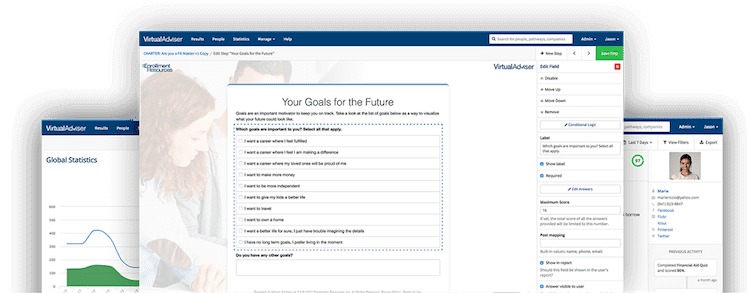Cardiac Electrophysiology Technologist
The Cardiac Electrophysiology Technologist student is initially trained to recognize normal and abnormal 12-lead electrocardiograms (EKGs) and interpret recordings related to heart diseases such as bradyarrhythmias, tachyarrhythmias, heart block, chamber enlargement, and myocardial infarction.
As the student progresses through the program, standard protocols utilized during a Cardiac EP study are thoroughly explored. Students learn procedures related to Cardiac EP catheter placement when an arrhythmia is caused by “abnormal electrical circuits.”
Special instruction is provided on ablation procedures, often described as cauterization, of the affected heart area causing these often life-threatening abnormal rhythms.
The Core Curriculum includes the following:
- Anatomy & Physiology/ Pathophysiology
- Basic and Advanced electrocardiography
- Physics
- Cardiovascular Pharmacology
- IV Administration
- Vital signs
As our students progress through the specialized courses in Cardiac EP, the focus is placed on the following:
- Sterile technique and radiation safety
- Basic Hemodynamics
- Cardiac Pathology
- Advanced ECG and lethal arrhythmia recognition and intervention
- Principles of Cardiac Electrophysiology
- Pacemakers
- Implantable Cardioverter Defibrillators
- Implant Procedures
- Cardiac Rhythms and Arrhythmias
- Mapping Concepts
- Ablation Techniques
- Advanced Cardiac Life Support (ACLS), American Heart Association.
Special attention is given to monitoring systems, measurement of intervals, mapping and navigational systems, ablation techniques, and tilt table testing. During this program, the student will learn to identify atrial and ventricular study components, programmed electrical stimulation, sinus node recovery time, measurement of intervals, and catheter location.
Is a Career as a Cardiac Electrophysiology Technologist Right For You?
Take the Free Healthcare Career Training Readiness Quiz!

In only 3 minutes, receive a personalized report identifying your strengths and social style. Learn what training & careers are best for you!
The Clinical & Externship Experience
The off-campus clinical rotation is an integral part of the training program. The student is assigned to a school-approved clinical site by the Program Director. Students will maintain this rotation until all required hours have been completed within the allotted time frame. Site visits to hospitals are conducted regularly by the school clinical site coordinator to assess the student’s satisfactory progress.
Due to the technical nature of this program, students must have prior allied health training, recent clinical work experience, and college credits in anatomy & physiology, math, and science.
Career Placement
The knowledge and skills acquired in this program prepare students for responsible career entry positions with advancement opportunities in hospitals and other related healthcare facilities. There is a widespread demand for competent, credentialed Cardiac Electrophysiology Technologists.
Other Programs Carnegie Offers:
- Medical Assistant
- Medical Business Specialist
- Medical Insurance Biller
- Massage Therapy
- Electroneurodiagnostic Technologist
- Cardiology Technician
- Vascular Technologist
- Cardiovascular Technologist
- Invasive Cardiovascular Technologist
- Pacemaker/ICD Technician
Textbooks & Reference Manuals
| Publisher | Title | Author | ISBN | Price |
|---|---|---|---|---|
| Lippincott | ECG Workout Book | Huff | 978-1-4511-1553-6 | $52.79 |
| APRN World | Cardiac Pharmacology, 2nd Edition | Nair | 978-194-100-4128 | $74.95 |
| Elsevier | Anatomy & Physiology, 9th Edition | Patton/Thibodeau | 978-0-3232-9883-4 | $199.00 |
| EP Essentials | Understanding EP, A Comprehensive Guide | Haas, A.Felton, S.Felton | 978-1-7907-30377 | $212.00 |
| American Heart Association | ACLS | Woodson Education | $250.00 |






